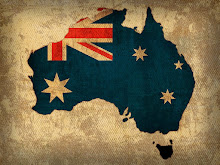His plan was to occupy Mexican forces to prevent attacks against the critical supply convoy it was his mission to defend. While the Legionnaires prepared to defend the inn, the Mexican commander, Colonel Milan, demanded Danjou and soldiers surrender, noting the Mexican Army's numeric superiority. Danjou replied: "We have munitions. We will not surrender." He then swore to fight to the death, an oath which was seconded by the men.
Around 11 a.m. the Mexicans were increased in size by the arrival of 1,200 infantry. The Hacienda took fire but the French had lost all water early in the morning when pack mule were lost during the retreat.

At noon, Captain Danjou was shot in the chest and died; his soldiers continued fighting despite overwhelming odds under the command of an inspired 2nd Lt. Vilain, who held for four hours before falling during an assault.
At 5 p.m only 12 Légionnaires remain around 2nd Lt. Maudet. Soon after, with ammunition exhausted, the last of Danjou's soldiers, numbering only five under the command of Lt. Maudet, desperately mounted a bayonet charge.

Two men died outright, while the rest continued the assault. The tiny group was surrounded and beaten to the earth.
The Mexican commander Colonel Milan managed to prevent his men from ripping the surviving legionnaires to pieces. When the last two survivors were asked to surrender, they insisted that Mexican soldiers allow them safe passage home, to keep their arms, and to escort the body of Captain Danjou. To that, the Mexican commander commented, "What can I refuse to such men? No, these are not men, they are devils," and, out of respect, agreed to these terms.
Thanks to the heroic stand of the Foreign Legion in Camarón de Tejeda, Veracruz, the French supply convoy made it safely to Puebla. The Mexicans failed to relieve the siege and the city fell on May 17.
"Camerone Day" is the most important day for the Legion Etranger, for it best represents the fighting spirit of these men. The wooden prosthetic hand of Capitaine Danjou is brought out for display and veneration in special ceremonies at the Legion headquarters at Aubagne, France. That day officers prepare the coffee for their men to celebrate the one they didn't have time to drink before the battle.
After hearing of the battle, French Emperor Napoleon III had the name Camerone embroidered onto the flag of the Foreign Legion.
In 1892, a monument was dedicated to the Foreign Legion at the site of the battle. It reads:
ILS FURENT ICI MOINS DE SOIXANTE
OPPOSÉS A TOUTE UNE ARMÉE
SA MASSE LES ÉCRASA
LA VIE PLUTOT QUE LE COURAGE
ABANDONNA CES SOLDATS FRANÇAIS
LE 30 AVRIL 1863
A LEUR MEMOIRE LA PATRIE ELEVA CE MONUMENT*
They were less than sixty opposite here a whole army. The masses crushed them rather. Their life, rather than courage, gave up these French soldiers on April 30, 1863. In their memory the fatherland raised this monument.
 French Foreign Legionnaires during the French intervention in Mexico (1862-1867)
French Foreign Legionnaires during the French intervention in Mexico (1862-1867)To this day, Mexican soldiers, present arms when they pass this monument.

The French Foreign Legion still possesses the wooden hand of Captain Danjou, its most sacred relic.
"Never interrupt your enemy when he is making a mistake." - Napoleon
.













































Wonderful web-site, in which did you observed this details in this article? I am glad I found it. i am going to be checking out back soon to examine what other content articles you may have.
ReplyDeleteHotels in Venice
My great-great grandparents from Mexico lived through the French-Mexico war in the 1860s. They spoke about their experiences to their kids. My great-grandparents passed down the stories of my great-great grandparents to my older aunts and uncles. My great-great grandparents called these men "chinacos". They wore their trousers underneath their boots. Since the French (as any other human being) had needs/urges, my great-great grandparents said that these soldiers would often break into homes, and seek out young women. People in the village began countering this by digging large holes on the floor of the house. If they heard the French coming, everyone hid their young daughters in these holes, and camoflauged the surface. Soon, the French occupying the area found out about these holes. Those who had the bad habit of raping women started attaching the bayonets to their rifles, and checking the floors by tapping the surface. My great-great grandmother was once found hiding, but she never went into detail about had happened next (for obvious reasons). After she was found hiding and taken aside by the French soldiers, she just described the experience as "me fue de la chingada" in Spanish. In English, it translates to "it was fucking hell".
ReplyDelete